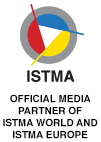In the fourth quarter 2022 machine tool orders kept growing (+3.5%) domestic orders (+5.4%); foreign orders (+2.4%)
26.01.2023
In the fourth quarter 2022, the index of machine tool orders processed by the Economic Studies Department & Business Culture Centre of UCIMU-SISTEMI PER PRODURRE marked a 3.5% increase compared with the period October-December 2021. The absolute value of the index stood at 133.6 (base year 2015=100). This is the new record value for the quarter of reference.
 Image by gefrorene_wand from Pixabay
Image by gefrorene_wand from Pixabay
The outcome was due to the good trend of orders collected abroad, as well as to the excellent results achieved in the domestic market.
In particular, the orders collected overseas grew by 2.4% compared with the same period of the previous year. The absolute value of the index was 103.9.
On the domestic front, the collected orders registered a 5.4% upturn. The absolute value of the index at 257 is the new all-time high. Barbara Colombo, president of UCIMU-SISTEMI PER PRODURRE, commented: “This performance is really satisfactory, as it is compared with the result of the fourth quarter 2021, which had already been exceptional. The excellent outcome was mostly due to the accelerated purchasing decisions of end users, who completed their investment processes by the end of the year 2022 to take advantage of the tax credit at 40%, being aware that – as announced by the Government – from January 2023, the tax rate would be halved”.
On the other hand, on an annual basis, the index of orders shows a -7.8% downturn, for an absolute value of 120.1. The decrease was due to the reduction in the collection of orders in the Italian market, (-20.8%) for an absolute value of 144.7. On the contrary, the orders from abroad were on the rise (+2.8%), for an absolute value of 115.9.
Barbara Colombo, president of UCIMU-SISTEMI PER PRODURRE, stated: “If we observe the performance of the order collection over the entire year, it is clear that in any case the “blaze” in the fourth quarter could not counterbalance the fall reported in the previous quarters. This fall was mostly due to the reduction in the orders collected by manufacturers in the Italian market, which is however compared with the boom recorded in the four quarters 2021”.
“After all, - went on the president of UCIMU-SISTEMI PER PRODURRE, Barbara Colombo – we expected this trend, both for the annual index and for the last quarter. In particular, with reference to the 12-month period, the downturn in the domestic market is not surprising: we cannot expect that the Italian market may keep on growing at the pace registered in the last two years. That said, the demand expressed in Italy remains dynamic, because the process of digital transformation is in full swing”.
“Therefore, - affirmed Barbara Colombo – it is necessary to ensure a continuity of the measures 4.0 in effect for over five years, which should continue and, if possible, be increased. While understanding the choice made by the Italian Government that gave priority to the measures aimed at reducing the impact of high energy costs on the whole population, private citizens and enterprises, we stress again that it is necessary to confirm the applicability of the provisions 4.0 under the same conditions established until 2022”.
“In detail, - continued the president of UCIMU – with regard to the measures of “Transition 4.0”, we ask to maintain the 40% rate in the calculation of tax credit also for 2023. From January 2023, the rate will be halved, unless amendments are made. This will only reduce the propensity of Italian end users to invest in new production technologies. It is a risk we cannot afford to run because the upgrade of the Italian industry has certainly started but much is still to be done. At the same time, we also ask for a 3-month postponement, from 31 September to 31 December 2023, of the delivery times for the machines ordered by 31 December 2022 (for which a 20% down payment was already made). In this way, manufacturers could absorb the delays in the deliveries of electrical and electronic components suffered in the production phase”.
“Moreover, in the medium and long term, we also think - concluded Barbara Colombo – that, in addition to the tax credit for the new investments in digital and interconnected technologies, a further measure should be implemented to be used also in a cumulative way, which might materialise into a tax credit for sustainability. In our vision, this provision should support the actions capable of encouraging the integrated development of new generations of products, also taking into account the impact in terms of environmental footprint”
For more information, please visit: www.ucimu.it













































